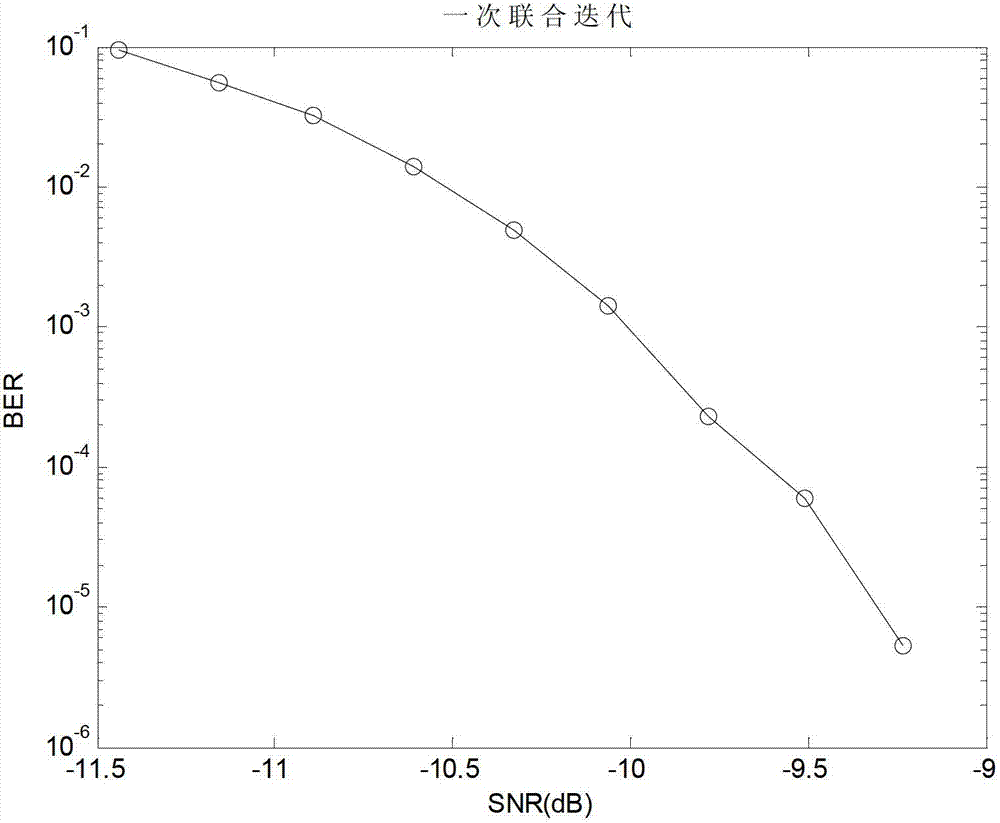Remote underwater acoustic communication method based on soft-demodulation soft-decoding joint iteration
A joint iteration and underwater acoustic communication technology, which is applied in phase modulation carrier systems, digital transmission systems, electrical components, etc., can solve the very demanding requirements of reducing the bit error rate, increasing the transmission power, and the linear amplification range of underwater acoustic transducers And other issues
- Summary
- Abstract
- Description
- Claims
- Application Information
AI Technical Summary
Problems solved by technology
Method used
Image
Examples
Embodiment Construction
[0035] The present invention is described in more detail below in conjunction with accompanying drawing example:
[0036] combine figure 1 , the stated purpose of the present invention is achieved through the following technical solutions:
[0037] The transmitter first performs LDPC (parity check code) encoding on the binary information sequence sent by the source. The function is to add check information on the basis of the original information sequence to form a new string of symbol sequences, and perform QPSK (quaternary phase Shift keying) modulation and Gray (Gray) mapping, every two symbol sequences are mapped to one of the four positions in the constellation diagram, and a very long transmitted signal is obtained after spreading by the Walsh-m composite sequence At this time, the underwater acoustic transducer is used to convert the digital signal to be transmitted into an underwater acoustic signal, so as to facilitate transmission in the long-distance underwater acous...
PUM
 Login to View More
Login to View More Abstract
Description
Claims
Application Information
 Login to View More
Login to View More - R&D
- Intellectual Property
- Life Sciences
- Materials
- Tech Scout
- Unparalleled Data Quality
- Higher Quality Content
- 60% Fewer Hallucinations
Browse by: Latest US Patents, China's latest patents, Technical Efficacy Thesaurus, Application Domain, Technology Topic, Popular Technical Reports.
© 2025 PatSnap. All rights reserved.Legal|Privacy policy|Modern Slavery Act Transparency Statement|Sitemap|About US| Contact US: help@patsnap.com



